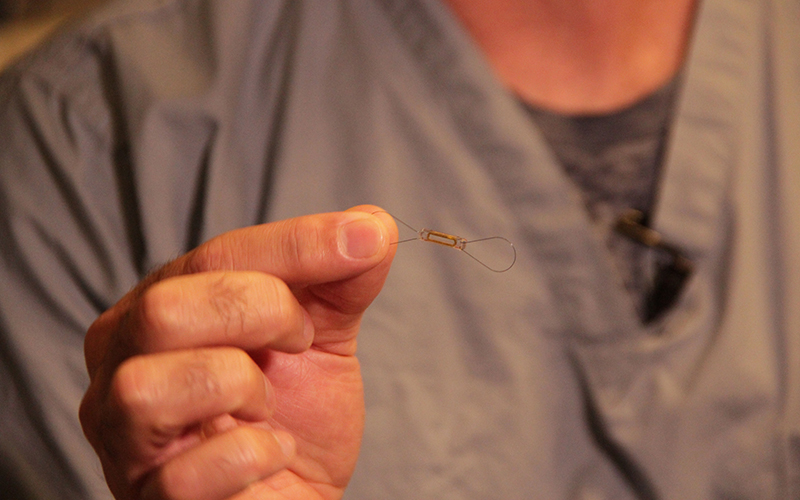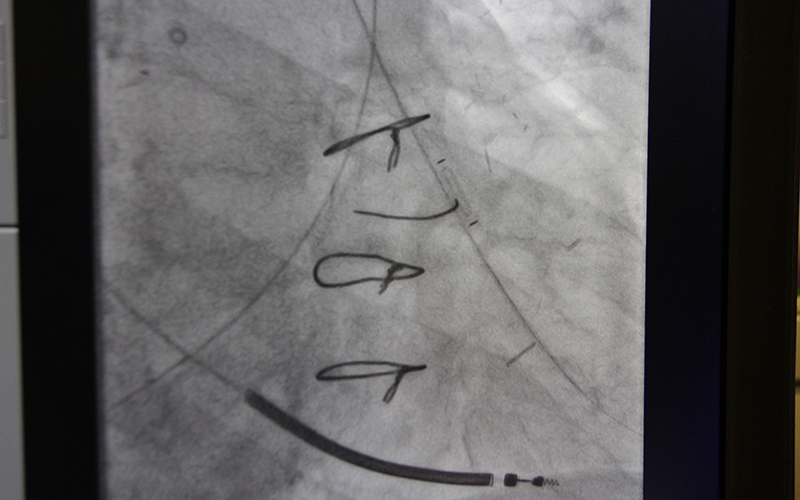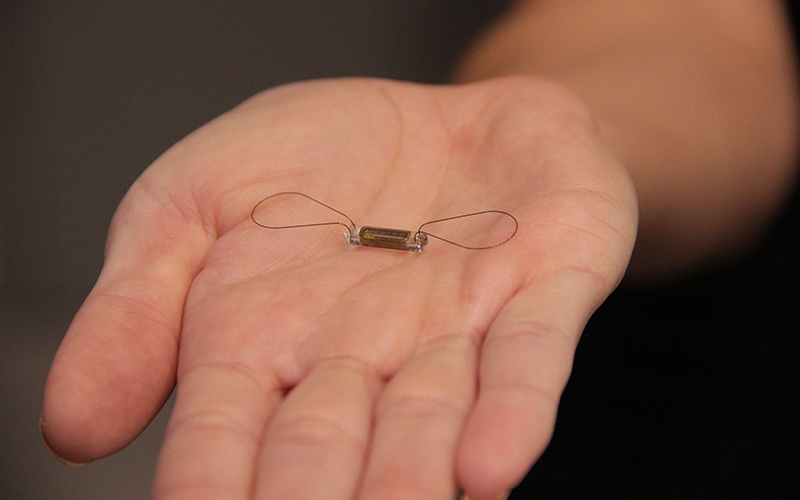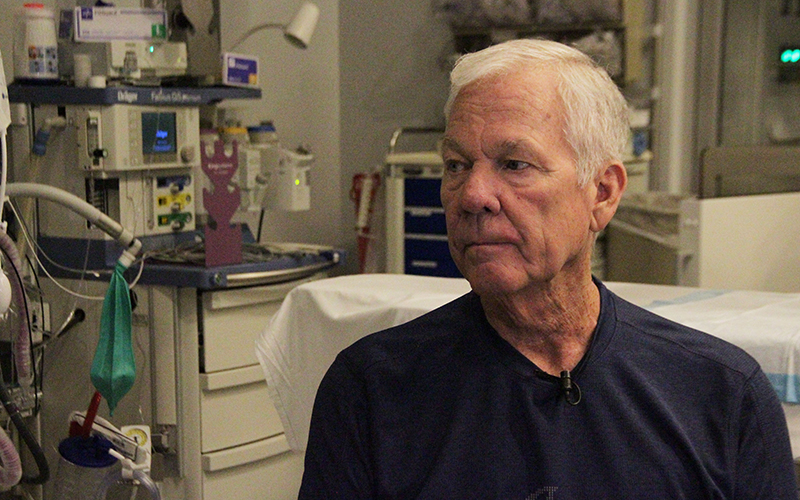PHOENIX – David Barnard felt a pain in his chest. His vision blurry and his left arm limp, he turned to his friend.
“We need to go to the hospital now,” Barnard said.
“I was scared to death,” Barnard said. “I had just been in the gym that morning, completely fine.”
The heart attack Barnard suffered two decades ago required triple bypass surgery and an implanted defibrillator. Years later, after another mild heart attack, he had more surgery. Now 74, with his heart weakened, he required regular doctor visits.
Then a device the size of a paper clip arrived in his life.

The implant is about the size of a paperclip. It is connected to a sensor to monitor the condition of a patient’s heart. (Photo by Devin Conley/Cronkite News)
Doctors in July implanted a device, similar to a stent, in Barnard’s heart. Sensors on the device detect changes in heart pressure that could indicate problems. Every day for 20 seconds, Barnard lays down on a monitor, embedded in a pillow, that transmits information to his doctor’s smartphone or computer.
The monitoring device also can be set up to send alerts.
“The intention of this is to keep patients out of the hospital,” Dr. Marwan Bahu, of Abrazo Arizona Heart Hospital, said. “This empowers the physician to make decisions way ahead of symptoms.”
The device, CardioMEMS, was released in 2014 but has been used increasingly in the last year because Medicare started to cover patients’ costs, according to a spokeswoman for the maker, Abbott.

The CardioMEMS is placed in a branch of the heart. The procedure takes about 30 minutes. (Photo by Devin Conley/Cronkite News)
“This is the same way we monitor pacemakers and defibrillators,” Bahu said. “This is just monitoring their fluids instead.”
A doctor who has researched and written about advancements in digital medicine said there are less invasive and lower cost alternatives.
“I think it’s absurd,” said San Diego physician Eric Topol. “I believe in wearable, reusable devices that reduce hospital visits,” such as necklaces, he said.
Medicare should shave costs in a tough economy, he said, especially when there are better solutions.
Bahu said the device, which takes about 30 minutes to implant, provides the “gold standard of information.”

Using the device is meant to decrease the number of hospitalizations and regular check ups for patients with heart conditions. Patients reported more than 35 percent less visits to the hospital in the first year of having the device, according to Abrazo Arizona Heart Hospital. (Photo by Devin Conley/ Cronkite News)
Arizona patients who received the CardioMEMS reported a nearly 40 percent decrease in hospital visits because of heart complications, according to a 2011 Journal of American College of Cardiology study.
More than 20 percent of Arizona Medicare patients who suffered congestive heart failure had to be readmitted to the hospital within 30 days, according to the study.
More than 3 million adult, 30-day hospital readmissions in the U.S. accumulated more than $41 billion in hospital costs in 2011. That saves about $11,000 in Medicare charges per patient a year, the study said.

